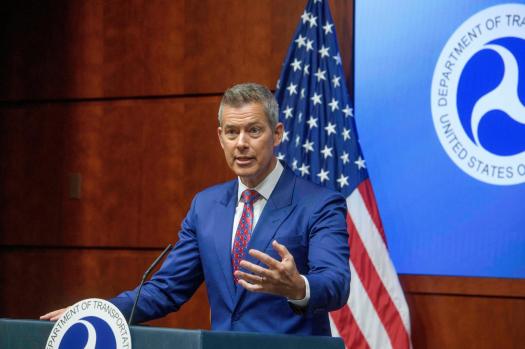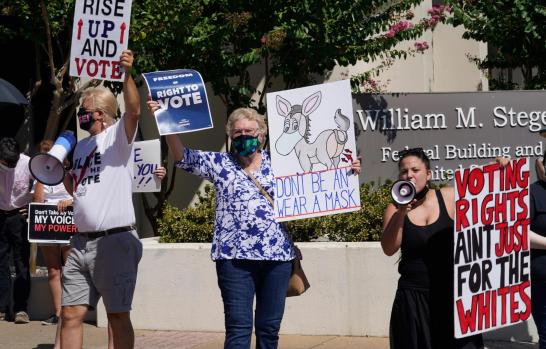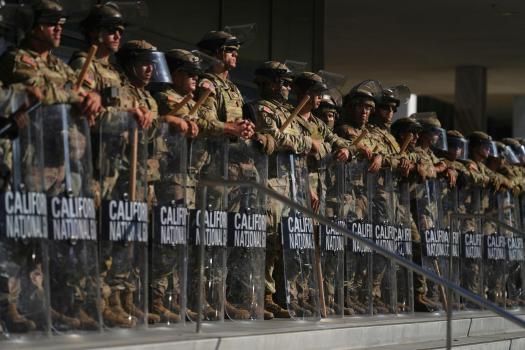By Rebecca Boone and Michael Casey
Boston (AP) On Thursday, a federal court prevented the Trump administration from denying billions of dollars in transportation funding to states that refuse to take part in some immigration enforcement initiatives.
Related Articles
-
Appeals court lets Trump keep control of National Guard troops deployed to Los Angeles
-
Yes, more and more celebrities are entering the phone business. Here s why
-
Trump is silent about Juneteenth on a day he previously honored as president
-
Federal immigration agents asked to leave Dodger Stadium parking lot, team says
-
Tucker Carlson feuds with Ted Cruz on Iran in tense interview
Transportation Secretary Sean Duffy allegedly threatened to stop financing states that did not follow President Donald Trump’s immigration agenda, prompting 20 states to file a lawsuit.Before the case is settled, U.S. District Judge John McConnell Jr. prohibited federal transportation officials from executing that threat.
McConnell, chief judge for the federal district of Rhode Island, wrote, “The Court finds that the States have demonstrated they will face irreparable and continuing harm if forced to agree to Defendants unlawful and unconstitutional immigration conditions imposed in order to receive federal transportation grant funds.” The States risk losing the trust that has been established between local law enforcement and immigrant communities, losing billions of dollars in federal funding, being forced to give up their sovereign right to choose how to use their own police officers, and having to reduce, reevaluate, or abandon ongoing transportation projects.
The Department of Transportation sent letters to states on April 24 warning them to work together on immigration initiatives or risk forfeiting the funding that Congress had granted. Although no funds were immediately cut off, some states were afraid that this would happen soon.
The lawsuit was filed in May by attorneys general from California, Colorado, Connecticut, Delaware, Hawaii, Illinois, Maine, Maryland, Massachusetts, Michigan, Minnesota, Nevada, New Jersey, New Mexico, New York, Oregon, Rhode Island, Washington, Wisconsin, and Vermont, who claimed that the new so-called Duffy Directive placed them in an unworkable situation.
The attorneys general wrote in court documents that the states have two options: either they try to comply with an illegal and unconstitutional requirement that would relinquish their sovereign control over their own law enforcement officers and decrease immigrants’ willingness to report crimes and take part in public health programs, or they lose tens of billions of dollars of funds that they depend on on a regular basis to support the roads, highways, railways, airways, ferries, and bridges that connect their communities and homes.
However, acting Sara Miron Bloom, the U.S. attorney for Rhode Island, informed the judge that the Department of Transportation has been legally authorized by Congress to impose requirements on the grant funds it distributes to states, and that this is a reasonable use of that authority to demand compliance and collaboration with federal law enforcement. According to court filings, Bloom stated that there is no long-term harm in permitting the federal government to withhold the cash while the lawsuit proceeds because they can easily be released later if necessary.
“But if the Department of Transportation wins the case, requiring the federal government to release the money to uncooperative states will probably make it impossible to recoup later,” Bloom added.












